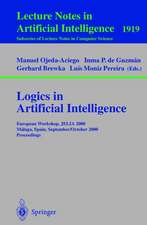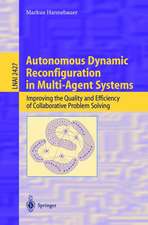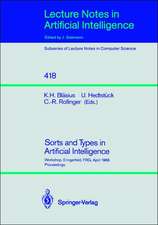Rough Set–Based Classification Systems: Studies in Computational Intelligence, cartea 802
Autor Robert K. Nowickien Limba Engleză Hardback – 5 feb 2019
This book demonstrates an original concept for implementing the rough set theory in the construction of decision-making systems. It addresses three types of decisions, including those in which the information or input data is insufficient. Though decision-making and classification in cases with missing or inaccurate data is a common task, classical decision-making systems are not naturally adapted to it. One solution is to apply the rough set theory proposed by Prof. Pawlak.
The proposed classifiers are applied and tested in two configurations: The first is an iterative mode in which a single classification system requests completion of the input data until an unequivocal decision (classification) is obtained. It allows us to start classification processes using very limited input data and supplementing it only as needed, which limits the cost of obtaining data. The second configuration is an ensemble mode in which several rough set-based classification systems achieve the unequivocal decision collectively, even though the systems cannot separately deliver such results.
Din seria Studies in Computational Intelligence
- 20%
 Preț: 449.37 lei
Preț: 449.37 lei - 20%
 Preț: 1158.26 lei
Preț: 1158.26 lei - 20%
 Preț: 986.66 lei
Preț: 986.66 lei - 20%
 Preț: 1452.76 lei
Preț: 1452.76 lei - 20%
 Preț: 168.78 lei
Preț: 168.78 lei - 20%
 Preț: 1291.10 lei
Preț: 1291.10 lei - 18%
 Preț: 1112.30 lei
Preț: 1112.30 lei - 20%
 Preț: 565.39 lei
Preț: 565.39 lei - 20%
 Preț: 649.28 lei
Preț: 649.28 lei - 20%
 Preț: 1047.73 lei
Preț: 1047.73 lei - 20%
 Preț: 1578.96 lei
Preț: 1578.96 lei - 20%
 Preț: 643.50 lei
Preț: 643.50 lei - 20%
 Preț: 657.49 lei
Preț: 657.49 lei - 20%
 Preț: 993.28 lei
Preț: 993.28 lei - 20%
 Preț: 990.80 lei
Preț: 990.80 lei - 20%
 Preț: 989.96 lei
Preț: 989.96 lei - 20%
 Preț: 1165.69 lei
Preț: 1165.69 lei - 20%
 Preț: 1444.52 lei
Preț: 1444.52 lei - 20%
 Preț: 1041.96 lei
Preț: 1041.96 lei - 20%
 Preț: 1047.73 lei
Preț: 1047.73 lei - 20%
 Preț: 1046.06 lei
Preț: 1046.06 lei - 18%
 Preț: 2500.50 lei
Preț: 2500.50 lei - 20%
 Preț: 989.13 lei
Preț: 989.13 lei - 20%
 Preț: 1165.69 lei
Preț: 1165.69 lei - 20%
 Preț: 1164.05 lei
Preț: 1164.05 lei - 20%
 Preț: 1042.79 lei
Preț: 1042.79 lei - 20%
 Preț: 1460.19 lei
Preț: 1460.19 lei - 18%
 Preț: 1403.52 lei
Preț: 1403.52 lei - 18%
 Preț: 1124.92 lei
Preț: 1124.92 lei - 20%
 Preț: 1039.47 lei
Preț: 1039.47 lei - 20%
 Preț: 1008.11 lei
Preț: 1008.11 lei - 20%
 Preț: 1045.25 lei
Preț: 1045.25 lei - 20%
 Preț: 1275.42 lei
Preț: 1275.42 lei - 20%
 Preț: 1040.32 lei
Preț: 1040.32 lei - 20%
 Preț: 988.32 lei
Preț: 988.32 lei - 20%
 Preț: 1169.79 lei
Preț: 1169.79 lei - 20%
 Preț: 1162.37 lei
Preț: 1162.37 lei - 20%
 Preț: 1059.26 lei
Preț: 1059.26 lei - 20%
 Preț: 1164.05 lei
Preț: 1164.05 lei - 20%
 Preț: 1166.52 lei
Preț: 1166.52 lei - 20%
 Preț: 1459.38 lei
Preț: 1459.38 lei - 18%
 Preț: 1005.74 lei
Preț: 1005.74 lei - 20%
 Preț: 997.38 lei
Preț: 997.38 lei - 20%
 Preț: 1055.94 lei
Preț: 1055.94 lei - 20%
 Preț: 1284.47 lei
Preț: 1284.47 lei - 20%
 Preț: 994.08 lei
Preț: 994.08 lei - 20%
 Preț: 1048.72 lei
Preț: 1048.72 lei - 20%
 Preț: 1066.02 lei
Preț: 1066.02 lei - 20%
 Preț: 943.78 lei
Preț: 943.78 lei - 20%
 Preț: 1173.10 lei
Preț: 1173.10 lei
Preț: 647.13 lei
Preț vechi: 808.91 lei
-20% Nou
Puncte Express: 971
Preț estimativ în valută:
123.83€ • 132.42$ • 103.25£
123.83€ • 132.42$ • 103.25£
Carte tipărită la comandă
Livrare economică 18 aprilie-02 mai
Preluare comenzi: 021 569.72.76
Specificații
ISBN-13: 9783030038946
ISBN-10: 3030038947
Pagini: 196
Ilustrații: XIII, 188 p. 125 illus.
Dimensiuni: 155 x 235 mm
Greutate: 0.46 kg
Ediția:1st ed. 2019
Editura: Springer International Publishing
Colecția Springer
Seria Studies in Computational Intelligence
Locul publicării:Cham, Switzerland
ISBN-10: 3030038947
Pagini: 196
Ilustrații: XIII, 188 p. 125 illus.
Dimensiuni: 155 x 235 mm
Greutate: 0.46 kg
Ediția:1st ed. 2019
Editura: Springer International Publishing
Colecția Springer
Seria Studies in Computational Intelligence
Locul publicării:Cham, Switzerland
Cuprins
Introduction.- Rough Set Theory Fundamentals.- Rough Fuzzy Classification Systems.- Fuzzy Rough Classification Systems.- Rough Neural Network Classifier.- Rough Nearest Neighbour Classifier.- Ensembles of Rough Set–Based Classifiers.- Final Remarks.
Textul de pe ultima copertă
This book demonstrates an original concept for implementing the rough set theory in the construction of decision-making systems. It addresses three types of decisions, including those in which the information or input data is insufficient. Though decision-making and classification in cases with missing or inaccurate data is a common task, classical decision-making systems are not naturally adapted to it. One solution is to apply the rough set theory proposed by Prof. Pawlak.
The proposed classifiers are applied and tested in two configurations: The first is an iterative mode in which a single classification system requests completion of the input data until an unequivocal decision (classification) is obtained. It allows us to start classification processes using very limited input data and supplementing it only as needed, which limits the cost of obtaining data. The second configuration is an ensemble mode in which several rough set-based classification systems achieve the unequivocal decision collectively, even though the systems cannot separately deliver such results.
Caracteristici
Allows the reader to successfully work with sets of indistinguishable values and missing values Develops decision-making systems in two configurations: iterative and collective Written by respected experts in the field

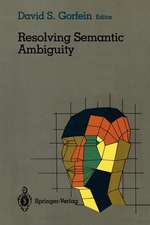
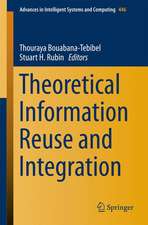






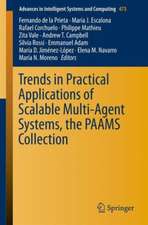




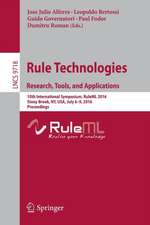
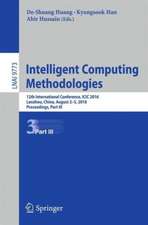




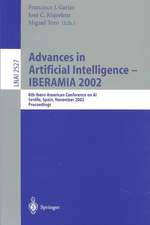

![OMDoc -- An Open Markup Format for Mathematical Documents [version 1.2]: Foreword by Alan Bundy](https://i2.books-express.ro/bt/9783540378976/omdoc-an-open-markup-format-for-mathematical-documents-version-1-2.jpg)
